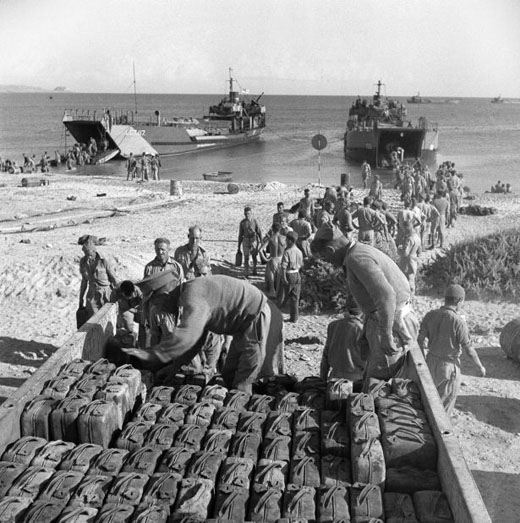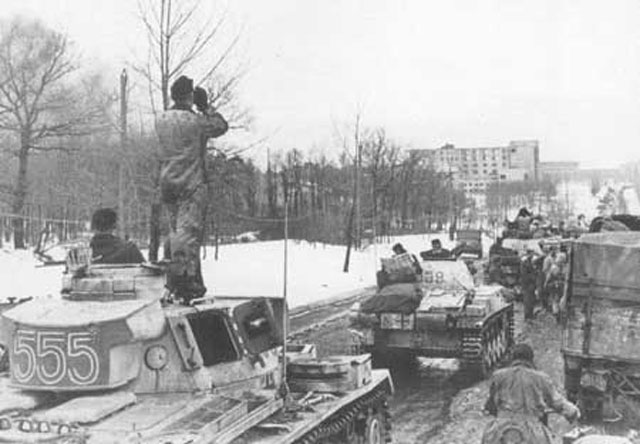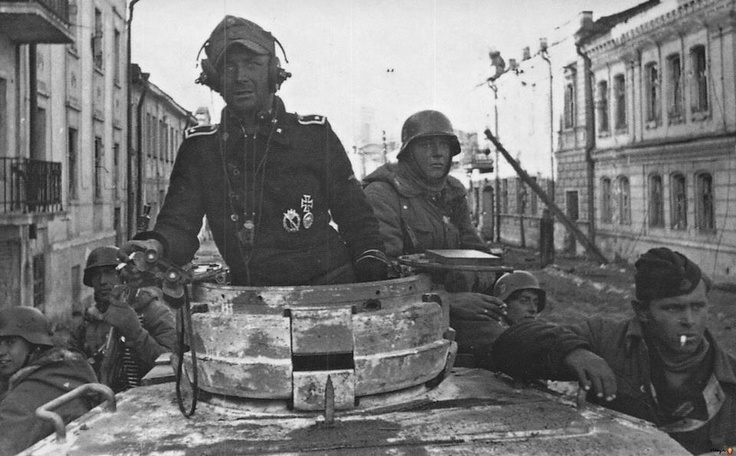Air Operations, Bismarcks
43rd Heavy Bomb Group B-17s mount individual attacks against Gasmata, a ship off Talasea, and an antiaircraft emplacement at Cape Gloucester.
[Air Operations, CBI
BURMA- 4 B-24s from the 7th Heavy Bomb Group attack the dock area at Moulmein.
- 8 341st Medium Bomb Group B-25s attack the viaduct at Gokteik.
Air Operations, East Indies
1 90th Heavy Bomb Group B-24 attacks Dili, Timor.
[Air Operations, Europe
BOMBER COMMANDEvening Ops:
- 13 Wellingtons lay mines in the Frisians without a loss.
Air Operations, New Guinea
- 43rd Heavy Bomb Group B-17s and 90th Heavy Bomb Group B-24s attack Madang, Tring, and Wewak.
- Individual B-24s attack the airfield at Finschhafen.
- During the night, 15 Japanese bombers mount an uncontested attack against Allied bases in the Oro Bay area.
Air Operations, Tunisia
12 79th Fighter Group P-40s escort 11 IX Bomber Command B-25s on an attack against gun emplacements on the Mareth Line.
[Battle of the Atlantic
Nazi U-boat destruction reaches its height in a running battle between 38 German U-boats and 2 Allied convoys. The official Royal Navy history of the war calls the outcome a 'serious disaster to the Allied cause.' The action takes place along the east coast of Newfoundland. In a series of convoy battles, the largest during the war, lasting about a week, 21 ships of 140,000 tons are sunk from the convoys SC-122 and HX-229. The slower SC convoy is sailing in front and gradually the 2 coalesce into one mass of about 100 ships. About 20 U-boats out of a pack of 40(38?) manage to make attacks and, despite the efforts of the escort, no U-boats are sunk. The German intelligence service, B Dienst, has provided good information on the routes of these convoys.
The entire convoy concept is now in jeopardy and the British Admiralty questions whether the war itself can be properly prosecuted. What turns the tide, however, is the introduction of long-range aircraft, carrier escorts and the development of ship and aircraft shortwave radar which pinpoints the presence and location of submarines.
The British minesweeping trawler Moravia sinks on a mine in the North Sea.
[Eastern Front
German armor and infantry eradicate the last resistance in Kharkov. Russian resistance west of the Donets River has collapsed.
|
|
The SS Das Reich and Leibstandarte SS Adolf Hitler Divisions clear the last pockets of Soviet resistance inside Kharkov and begin to advance to the east. German forces southeast of the city continue their advance, the XLVIII Panzer Corps clearing Merefa.
[Mediterranean
The British submarine Thunderbolt is sunk by the Italian corvette Cicogna off Cape Milazzo, Sicily with the loss of her entire crew of 62.
[New Guinea
ustralians and Americans attack again, forcing the Japanese to retreat slowly north of Guadagasel.
[North Africa
Cardinal Spellman, Archbishop of New York and Military Vicar of the US Army and Navy, broadcasts to US Forces from Algiers, describes American troops as 'modern crusaders' who will be 'the sacred instruments of our cause'.
Gen Giraud restores representative government in French North Africa and suppresses organizations of Vichy origin.
Gen Alexander issues a policy directive regarding the forthcoming offensive in Tunisia.
Unloading in Tobruk |
 |

